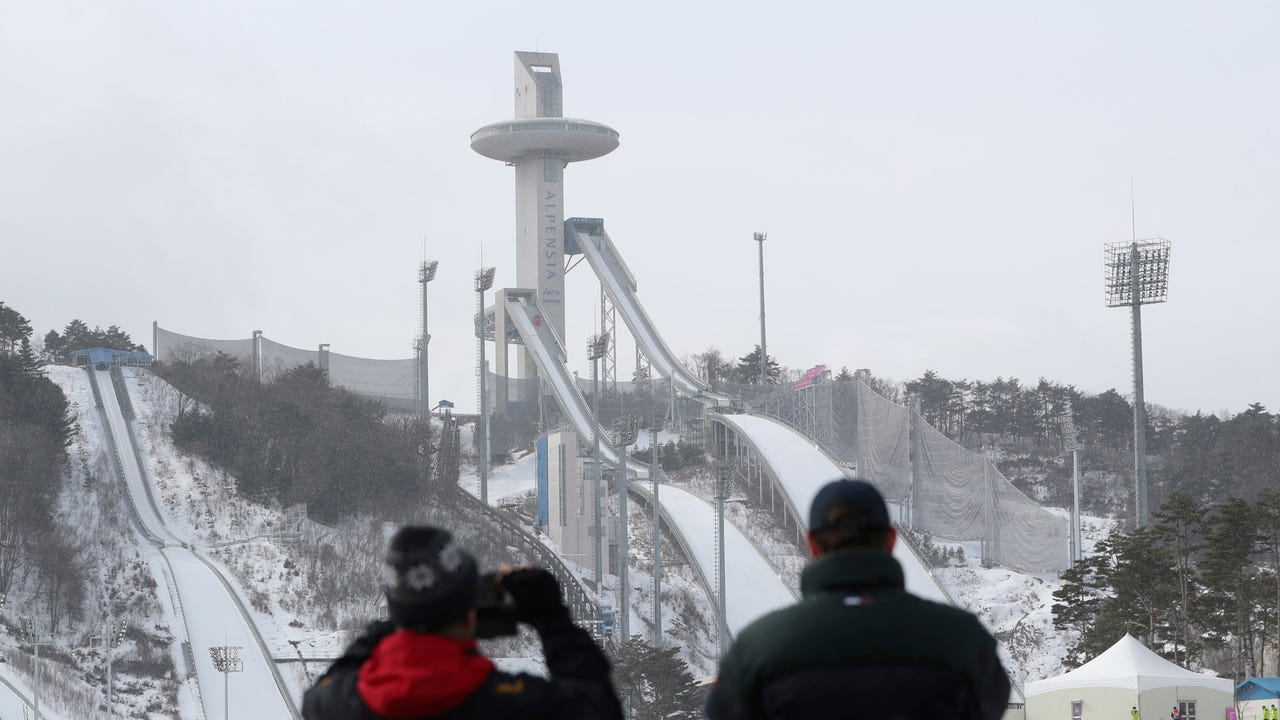IOC intends to decide in December on Russia’s participation in Pyeongchang Olympics – USA TODAY

SportsPulse: USA TODAY Sports’ Nancy Armour breaks down the current security concern for 2018 Winter Olympics in Pyeongchang County, South Korea.
USA TODAY Sports
The International Olympic Committee intends to decide on Russia’s participation in the Pyeongchang Games in December.
The IOC has been waiting on the findings of two commissions whose work started 15 months ago as anti-doping and sport leaders have called for a decision to be rendered before the Olympics begin in February, and, in several cases, called for a ban of Russia entirely.
In a statement following its Olympic Summit on Saturday, the IOC said work on both commissions should be done in time for the executive board to issue a decision at its December meeting in Lausanne.
The summit included officials from the IOC, international federations (IFs), National Olympic Committees along with other sport and anti-doping leaders.
In a statement from the summit, the leaders admonished those calling for sanctions against Russia, saying, “The Olympic Summit expressed its strong concerns and considered it unacceptable that specific sanctions are already being demanded in the public domain before the two Commissions have even completed their work and due process, to which any individual and organization is entitled, has been followed.”
Two investigations commissioned by the World Anti-Doping Agency in 2015 and 2016 revealed widespread and state-sponsored doping in Russia.
More: Officials say 4 percent of Paralympic tickets sold for Pyeongchang Games
More: Lindsey Vonn sees women’s World Cup circuit treated as ‘pony show’
A report from Canadian lawyer Richard McLaren in July 2016 revealed that Russia subverted the anti-doping system during the Sochi Olympics by swapping out urine samples through a hole in the wall. His final report, released in December, showed more than 1,000 Russian athletes were involved in the state-sponsored system.
In response to McLaren’s first report, the IOC created two commissions in July 2016. One, chaired by Denis Oswald, is tasked with examining individual cases of doping while the other, led by Samuel Schmid, is examining the system.
The Oswald Commission conducted a re-analysis of all samples from Russian athletes in Sochi, including the 28 athletes named in the McLaren Report, to look for evidence of doping as well as whether the samples were manipulated.
In a letter released by the IOC last week, Oswald said hearings for active athletes who could compete in Pyeongchang will be completed by the end of November. Once those decisions are announced, winter sports IFs would follow up with disciplinary hearings.
In its statement, the Olympic Summit said Schmid Commission hearings “are ongoing” and that it will “produce its report within the next few weeks.”
The IOC executive board meets Dec. 5-7.
Whether it will consider an outright ban is unclear, even as many have called for one. Leaders from 17 National Anti-Doping Organizations, including the U.S. Anti-Doping Agency, called for a ban of Russia last month.
Like many, the NADO leaders called for a path for Russians to compete as neutral athletes provided they can demonstrate their anti-doping record.
Leaders from the U.S. Olympic Committee and Canadian Olympic Committee have been among those calling for timely action from the IOC.
“I believe the IOC is pursuing the findings of the McLaren Report, both in earnest and in good faith, and I believe the IOC when they say there will be consequences for the bad actors,” USOC CEO Scott Blackmun said before members of the U.S. Olympic community earlier this month. “But at some point, justice delayed is justice denied, and we are fast approaching that point.”
WADA was among those calling for Russia to be banned from the Rio Olympics in July 2016 after the release of McLaren’s first report.
The IOC did not adopt that recommendation, instead leaving decisions the IFs governing each sport with specific criteria for them to determine if the anti-doping record of Russian athletes was sufficient to allow them to compete. Those decisions were reviewed by an expert from the Court of Arbitration for Sport.
Ultimately, 271 Russian athletes competed in Rio. The International Paralympic Committee banned the country’s athletes entirely.



